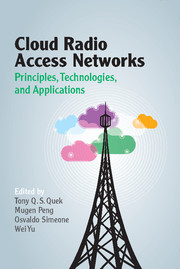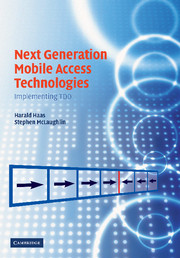WCDMA Design Handbook
Developed out of a successful professional engineering course, this practical handbook was originally published in 2005, and provides a comprehensive explanation of the Wideband CDMA (Code Division Multiple Access) air interface of 3rd generation UMTS cellular systems. The book addresses all aspects of the design of the WCDMA radio interface from the lower layers to the upper layers of the protocol architecture. It considers each of the layers in turn, to build a complete understanding of the design and operation of the WCDMA radio interface including the physical layer, RF and baseband processing, MAC, RLC, PDCP/BMP, Non-Access stratum and RRC. An ideal course book and reference for professional engineers, undergraduate and graduate students.
- It considers the design and operation of the complete WCDMA protocol stack in detail
- It addresses all the layers of the protocol stack in detail
- It provides clear explanations through the extensive use of diagrams of the WCDMA system
Reviews & endorsements
Review of the hardback: '… as with many UMTS-related books, this text focuses on the operation of the air interface. However, the subject is addressed with the appropriate level of detail in order to be an excellent companion, particularly to those working in component and system design. It presents and organized and clear examination of the topic, certainly more approachable than the related specifications … through sharing his experience in this area, the author presents a valuable and comprehensive treatment of the subject.' IEE Communications Engineer
Review of the hardback: 'This is a good handbook with precise technical information, although some basics of WCDMA are also gathered in the first part.' IEEE Radio Communications
Product details
March 2011Paperback
9780521187824
592 pages
244 × 170 × 30 mm
0.93kg
Available
Table of Contents
- 1. Introduction
- 2. WCDMA in a nutshell
- 3. Spreading codes and modulation
- 4. Physical layer
- 5. RF aspects
- 6. Symbol rate processing functions. 7. Chip rate processing functions. 8. Layer 2 - MAC
- 9. Layer 2 - RLC
- 10. PDCP and BMC protocols
- 11. Non access stratum
- 12. Idle mode functions
- 13. Layer 3 - RRC
- 14. Measurements
- Index.




